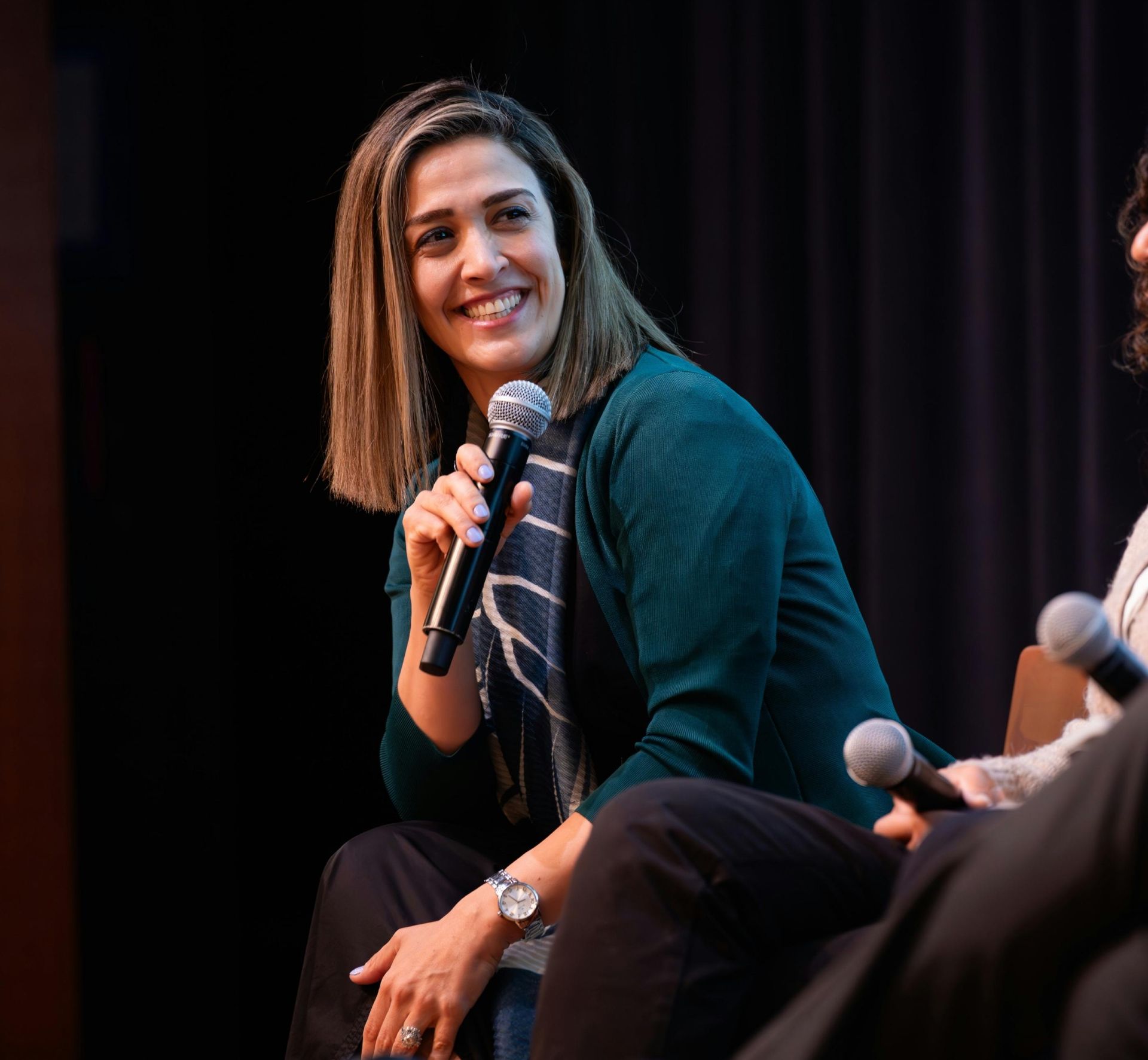We met with Betsabeh Madani-Hermann, Global Head of Research at Philips, at the Web Summit Qatar 2025. She shared her insights into driving groundbreaking innovations in healthcare. Drawing from her experience as a scientist, entrepreneur, investor, and executive, Madani-Hermann outlined key principles for innovation: adaptability, boldness, and integrity. In this exclusive interview, she explains how Philips strategically prioritizes research, leverages AI and robotics for patient care, and facilitates effective collaboration between academia and industry.
Q: Can you tell us about the topic you covered at Web Summit Qatar?
Betsabeh Madani-Hermann: The session I spoke at was about the “Three Rules of Breakthrough Innovation.” At Philips, I’m responsible for future breakthrough innovations. This is my third year in this role and fourth at Philips, following a career as an investor, entrepreneur, scientist, engineer, and business professional. The core rules we discussed were adaptability, boldness, and integrity.
Integrity is fundamental, especially in healthcare, as patient safety and quality directly tie into ethical standards. Even a minor oversight can impact someone’s life significantly. Adaptability is crucial because our world constantly evolves—new technologies emerge, and we need to continually learn, unlearn, and relearn. Boldness involves embracing failure as an essential part of innovation, which is particularly challenging in large corporations. This approach allows us to quickly discard what doesn’t work and focus on what does.
Q: With your multidisciplinary background, how do you balance risk-taking with commercial viability?
Betsabeh Madani-Hermann: It’s about holding opposing ideas simultaneously without losing sight of either. You must be methodical and patient, following scientific and engineering methods, while also being agile, fast, and strategically focused. This balance is informed by my diverse experience—academic training, startup exposure, and investment insights. Empathy, derived from understanding various perspectives, helps in making better decisions. Two personal mottos guide me: “cross-functional and cross-geography is how humans grow,” and “soft on people, hard on facts.” These principles drive our approach to research.
Q: How does Philips prioritize its research areas?
Betsabeh Madani-Hermann: At Philips, our innovations must align with our business scale and strategy. Our approach balances incremental near-term improvements and strategic, disruptive future innovations. We work closely with internal strategy and commercial teams to identify future gaps and monitor ecosystem trends externally.
A key Philips goal is giving back time to clinicians. Given healthcare staffing shortages, innovation—not recruitment—is the solution. Our projects primarily aim for efficiency and quality improvements, meaning faster, better, and more precise healthcare access.
For example, one exploratory innovation uses AI to correct echocardiography images, preventing unnecessary repeat visits and freeing up healthcare resources. On a larger scale, we’re working on robotic procedure automation, enabling surgeons to perform surgeries more precisely and uniformly, bridging experience gaps and expanding healthcare access.
Q: How do you see AI, robotics, and biotech shaping the future of medicine and patient care?
Betsabeh Madani-Hermann: Although Philips primarily focuses on medtech, I believe strongly in understanding the entire healthcare ecosystem. AI, robotics, and biotech advancements are interconnected and evolving rapidly, influencing each other significantly. For instance, while visiting Sidra Medicine in Qatar, I observed significant biotech and bioengineering progress, highlighting the broader ecosystem’s dynamic. Collaboration and understanding across disciplines amplify the potential of innovation.

Q: How can academia and industry collaborate more effectively?
Betsabeh Madani-Hermann: Early in my career, working at a Canadian entity between academia, industry, and government, I learned the importance of empathy and understanding different incentives. Academia values broad, deep research and publishing, while industry values speed and practicality. Successful collaboration involves aligning these motivations through strategic partnerships, fostering win-win outcomes, and demonstrating tangible impacts.
At Philips, diverse perspectives are intentionally cultivated within my team, including physicians, technical engineers, and other varied backgrounds. While debates can be challenging, they lead to thoroughly vetted, robust decisions.
Q: As a scientist and executive, how do you navigate research, strategy, and leadership?
Betsabeh Madani-Hermann: I stay intellectually engaged through broad and diverse reading, covering science, engineering, management strategies, and leadership practices. Currently, I’m reading “The Things We Make,” which contrasts engineering and scientific methods throughout history. Such interdisciplinary insights help me balance scientific curiosity with strategic discipline.
Q: What advice would you give founders in early-stage tough-tech startups?
Betsabeh Madani-Hermann: Firstly, clearly understand your ecosystem and your position within it. Recognize who your key stakeholders are—corporations, investors, or strategic partners—and align your approach accordingly. Secondly, regularly reevaluate your strategy as your knowledge and market evolve. Finally, know when to stop initiatives that aren’t working, as prioritizing effectively is crucial.
Q: What are the biggest opportunities and challenges of integrating AI into healthcare?
Betsabeh Madani-Hermann: Reliable data sourcing and validation remain significant challenges. Data quality directly impacts AI outcomes; thus, critically assessing and asking the right questions about AI models is essential. At Philips, for example, we collaborate with Massachusetts General Brigham on AI-driven systems enabling physicians to make rapid, informed decisions by aggregating patient data efficiently.
Q: Based on your life experience, what’s your top advice for our readers?
Betsabeh Madani-Hermann: Embrace life’s scars; they’re signs of experiences and growth. Challenges may appear daunting, but remember, the person completing the task isn’t the same one who started it. Every challenge shapes and strengthens us for what’s next. Don’t shy away from difficulty; it’s integral to growth and success.





